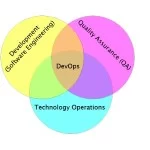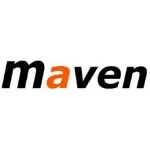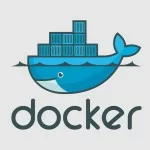Service Discovery with Java and Database application in Kubernetes
This blog will show how a simple Java application can talk to a database using service discovery in Kubernetes.
Service Discovery with Java and Database application in DC/OS explains why service discovery is an important aspect for a multi-container application. That blog also explained how this can be done for DC/OS.
Let’s see how this can be accomplished in Kubernetes with a single instance of application server and database server. This blog will use WildFly for application server and Couchbase for database.
This blog will use the following main steps:
- Start Kubernetes one-node cluster
- Kubernetes application definition
- Deploy the application
- Access the application
Start Kubernetes Cluster
Minikube is the easiest way to start a one-node Kubernetes cluster in a VM on your laptop. The binary needs to be downloaded first and then installed.
Complete installation instructions are available at github.com/kubernetes/minikube.
The latest release can be installed on OSX as:
1 2 | curl -Lo minikube https://storage.googleapis.com/minikube/releases/v0.17.1/minikube-darwin-amd64 \&& chmod +x minikube |
It also requires kubectl to be installed. Installing and Setting up kubectl provide detailed instructions on how to setup kubectl. On OSX, it can be installed as:
1 2 | curl -LO https://storage.googleapis.com/kubernetes-release/release/$(curl -s https://storage.googleapis.com/kubernetes-release/release/stable.txt)/bin/darwin/amd64/kubectl \ && chmod +x ./kubectl |
Now, start the cluster as:
01 02 03 04 05 06 07 08 09 10 11 | minikube startStarting local Kubernetes cluster...Starting VM...Downloading Minikube ISO 88.71 MB / 88.71 MB [==============================================] 100.00% 0sSSH-ing files into VM...Setting up certs...Starting cluster components...Connecting to cluster...Setting up kubeconfig...Kubectl is now configured to use the cluster. |
The kubectl version command shows more details about the kubectl client and minikube server version:
1 2 3 | kubectl versionClient Version: version.Info{Major:"1", Minor:"5", GitVersion:"v1.5.4", GitCommit:"7243c69eb523aa4377bce883e7c0dd76b84709a1", GitTreeState:"clean", BuildDate:"2017-03-07T23:53:09Z", GoVersion:"go1.7.4", Compiler:"gc", Platform:"darwin/amd64"}Server Version: version.Info{Major:"1", Minor:"5", GitVersion:"v1.5.3", GitCommit:"029c3a408176b55c30846f0faedf56aae5992e9b", GitTreeState:"clean", BuildDate:"1970-01-01T00:00:00Z", GoVersion:"go1.7.3", Compiler:"gc", Platform:"linux/amd64"} |
More details about the cluster can be obtained using the kubectl cluster-info command:
1 2 3 4 5 | Kubernetes master is running at https://192.168.99.100:8443KubeDNS is running at https://192.168.99.100:8443/api/v1/proxy/namespaces/kube-system/services/kube-dnskubernetes-dashboard is running at https://192.168.99.100:8443/api/v1/proxy/namespaces/kube-system/services/kubernetes-dashboard To further debug and diagnose cluster problems, use 'kubectl cluster-info dump'. |
Kubernetes Application Definition
Application definition is defined at github.com/arun-gupta/kubernetes-java-sample/blob/master/service-discovery.yml. It consists of:
- A Couchbase service
- Couchbase replica set with a single pod
- A WildFly replica set with a single pod
01 02 03 04 05 06 07 08 09 10 11 12 13 14 15 16 17 18 19 20 21 22 23 24 25 26 27 28 29 30 31 32 33 34 35 36 37 38 39 40 41 42 43 44 45 46 47 48 49 50 51 52 53 54 55 56 57 58 | apiVersion: v1kind: Servicemetadata: name: couchbase-servicespec: selector: app: couchbase-rs-pod ports: - name: admin port: 8091 - name: views port: 8092 - name: query port: 8093 - name: memcached port: 11210---apiVersion: extensions/v1beta1kind: ReplicaSetmetadata: name: couchbase-rsspec: replicas: 1 template: metadata: labels: app: couchbase-rs-pod spec: containers: - name: couchbase image: arungupta/couchbase:travel ports: - containerPort: 8091 - containerPort: 8092 - containerPort: 8093 - containerPort: 11210---apiVersion: extensions/v1beta1kind: ReplicaSetmetadata: name: wildfly-rs labels: name: wildflyspec: replicas: 1 template: metadata: labels: name: wildfly spec: containers: - name: wildfly-rs-pod image: arungupta/wildfly-couchbase-javaee:travel env: - name: COUCHBASE_URI value: couchbase-service ports: - containerPort: 8080 |
The key part is where the value of the
COUCHBASE_URI environment variable is name of the Couchbase service. This allows the application deployed in WildFly to dynamically discovery the service and communicate with the database.
arungupta/couchbase:travel Docker image is created using github.com/arun-gupta/couchbase-javaee/blob/master/couchbase/Dockerfile.
arungupta/wildfly-couchbase-javaee:travel Docker image is created using github.com/arun-gupta/couchbase-javaee/blob/master/Dockerfile.
Java EE application waits for database initialization to be complete before it starts querying the database. This can be seen at github.com/arun-gupta/couchbase-javaee/blob/master/src/main/java/org/couchbase/sample/javaee/Database.java#L25.
Deploy Application
This application can be deployed as:
1 | kubectl create -f ~/workspaces/kubernetes-java-sample/service-discovery.yml |
The list of service and replica set can be shown using the command kubectl get svc,rs:
1 2 3 4 5 6 7 8 | NAME CLUSTER-IP EXTERNAL-IP PORT(S) AGEsvc/couchbase-service 10.0.0.97 <none> 8091/TCP,8092/TCP,8093/TCP,11210/TCP 27msvc/kubernetes 10.0.0.1 <none> 443/TCP 1hsvc/wildfly-rs 10.0.0.252 <none> 8080/TCP 21m NAME DESIRED CURRENT READY AGErs/couchbase-rs 1 1 1 27mrs/wildfly-rs 1 1 1 27m |
Logs for the single replica of Couchbase can be obtained using the command kubectl logs rs/couchbase-rs:
01 02 03 04 05 06 07 08 09 10 11 12 13 | ++ set -m++ sleep 25++ /entrypoint.sh couchbase-serverStarting Couchbase Server -- Web UI available at http://<ip>:8091 and logs available in /opt/couchbase/var/lib/couchbase/logs++ curl -v -X POST http://127.0.0.1:8091/pools/default -d memoryQuota=300 -d indexMemoryQuota=300 . . . {"storageMode":"memory_optimized","indexerThreads":0,"memorySnapshotInterval":200,"stableSnapshotInterval":5000,"maxRollbackPoints":5,"logLevel":"info"}[]Type: ++ echo 'Type: '++ '[' '' = WORKER ']'++ fg 1/entrypoint.sh couchbase-server |
Logs for the WildFly replica set can be seen using the command kubectl logs rs/wildfly-rs:
01 02 03 04 05 06 07 08 09 10 11 12 13 14 15 16 17 18 19 | ========================================================================= JBoss Bootstrap Environment JBOSS_HOME: /opt/jboss/wildfly . . . 06:32:08,537 INFO [com.couchbase.client.core.node.Node] (cb-io-1-1) Connected to Node couchbase-service06:32:09,262 INFO [com.couchbase.client.core.config.ConfigurationProvider] (cb-computations-3) Opened bucket travel-sample06:32:09,366 INFO [stdout] (ServerService Thread Pool -- 65) Sleeping for 3 secs ...06:32:12,369 INFO [stdout] (ServerService Thread Pool -- 65) Bucket found!06:32:14,194 INFO [org.jboss.resteasy.resteasy_jaxrs.i18n] (ServerService Thread Pool -- 65) RESTEASY002225: Deploying javax.ws.rs.core.Application: class org.couchbase.sample.javaee.MyApplication06:32:14,195 INFO [org.jboss.resteasy.resteasy_jaxrs.i18n] (ServerService Thread Pool -- 65) RESTEASY002200: Adding class resource org.couchbase.sample.javaee.AirlineResource from Application class org.couchbase.sample.javaee.MyApplication06:32:14,310 INFO [org.wildfly.extension.undertow] (ServerService Thread Pool -- 65) WFLYUT0021: Registered web context: /airlines06:32:14,376 INFO [org.jboss.as.server] (ServerService Thread Pool -- 34) WFLYSRV0010: Deployed "airlines.war" (runtime-name : "airlines.war")06:32:14,704 INFO [org.jboss.as] (Controller Boot Thread) WFLYSRV0060: Http management interface listening on http://127.0.0.1:9990/management06:32:14,704 INFO [org.jboss.as] (Controller Boot Thread) WFLYSRV0051: Admin console listening on http://127.0.0.1:999006:32:14,705 INFO [org.jboss.as] (Controller Boot Thread) WFLYSRV0025: WildFly Full 10.1.0.Final (WildFly Core 2.2.0.Final) started in 29470ms - Started 443 of 691 services (404 services are lazy, passive or on-demand) |
Access Application
The kubectl proxy command starts a proxy to the Kubernetes API server. Let’s start a Kubernetes proxy to access our application:
1 2 | kubectl proxyStarting to serve on 127.0.0.1:8001 |
Expose the WildFly replica set as a service using:
1 | kubectl expose --name=wildfly-service rs/wildfly-rs |
The list of services can be seen again using kubectl get svc command:
1 2 3 4 5 | kubectl get svcNAME CLUSTER-IP EXTERNAL-IP PORT(S) AGEcouchbase-service 10.0.0.97 <none> 8091/TCP,8092/TCP,8093/TCP,11210/TCP 41mkubernetes 10.0.0.1 <none> 443/TCP 1hwildfly-service 10.0.0.169 <none> 8080/TCP 5s |
Now, the application is accessible at:
1 | curl http://localhost:8001/api/v1/proxy/namespaces/default/services/wildfly-service/airlines/resources/airline |
A formatted output looks like:
01 02 03 04 05 06 07 08 09 10 11 12 13 14 15 16 17 18 19 20 21 22 23 24 25 26 | [ { "travel-sample": { "country": "United States", "iata": "Q5", "callsign": "MILE-AIR", "name": "40-Mile Air", "icao": "MLA", "id": 10, "type": "airline" } }, { "travel-sample": { "country": "United States", "iata": "TQ", . . . "name": "Airlinair", "icao": "RLA", "id": 1203, "type": "airline" } }] |
Now, new pods may be added as part of Couchbase service by scaling the replica set. Existing pods may be terminated or get rescheduled. But the Java EE application will continue to access the database service using the logical name.
This blog showed how a simple Java application can talk to a database using service discovery in Kubernetes.
For further information check out:
- Kubernetes Docs
- Couchbase on Containers
- Couchbase Developer Portal
- Ask questions on Couchbase Forums or Stack Overflow
- Download Couchbase
| Reference: | Service Discovery with Java and Database application in Kubernetes from our JCG partner Arun Gupta at the Miles to go 3.0 … blog. |








